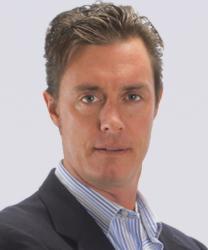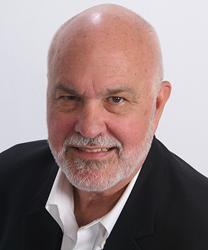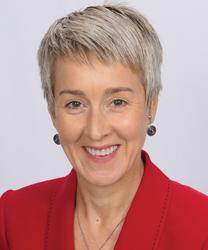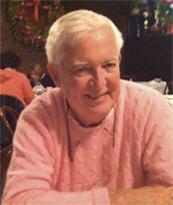Dr. Daniel (D.J.) Moran: Versatility Leads to Accomplishment
 Quality Safety Edge would like to welcome Dr. Daniel (D.J.) Moran as their new Senior Vice President. Dr. Moran joins the QSE team with experience in behavior-based safety and Acceptance and Commitment Therapy (ACT). Through his experiences, New to Quality Safety Edge, Moran has developed a workshop that couples BBS with leadership and employee commitment to safety. The workshop ensures that employees strongly tie their safe behavior at work to the quality of life it brings to themselves and their families.
Quality Safety Edge would like to welcome Dr. Daniel (D.J.) Moran as their new Senior Vice President. Dr. Moran joins the QSE team with experience in behavior-based safety and Acceptance and Commitment Therapy (ACT). Through his experiences, New to Quality Safety Edge, Moran has developed a workshop that couples BBS with leadership and employee commitment to safety. The workshop ensures that employees strongly tie their safe behavior at work to the quality of life it brings to themselves and their families.
“Once an Eagle Scout, always an Eagle Scout,” says Dr. D.J. Moran referring to his affiliation with the Boy Scouts of America, and he might add, once a heavy metal musician, always a heavy metal musician. What? Moran, Senior Vice President, QSE, could be described as a study in contradictions, but maybe a better description would be inquisitive and versatile. Yet, Moran, when talking about his life and career, seems altogether laid back. He begins his Web site self-description with “I’d prefer my biography to reflect the most vital and meaningful things in my life, and so I really should prioritize writing my bio about my family, friends, and love for heavy metal.”
It’s not the intro one would expect from a man with a doctorate in clinical and school psychology from Hofstra University, who is also a speaker, author, and founder of the MidAmerican Psychological Institute. His specialties include applied behavioral analysis, organizational behavior management, government consulting, Acceptance and Commitment Therapy (ACT), leadership consulting, behavior-based safety (BBS), innovation training, sales coaching, and executive coaching. Moran has also appeared in over a dozen television episodes of the Discovery Channel’s Hoarding: Buried Alive and Confessions: Animal Hoarding as an on-camera professional. New to Quality Safety Edge, Moran has developed a workshop that couples BBS with leadership and employee commitment to safety. The workshop ensures that employees strongly tie their safe behavior at work to the quality of life it brings to themselves and their families. However, despite his diverse interests and accomplishments, Moran’s focus on family and the enjoyment of life is probably what keeps him so grounded.
Born in Queens, New York, Moran (now a Chicago resident) grew up with his two brothersjust outside ofNew York City. He completed his undergraduate degree at Marquette University. But before he even attended one class, he met his future wife.“We met the first week of freshman orientation. She was about to get in the car to go home and she gave me a lollipop. I said to myself, ‘I’m going to hold onto this and show her that I saved it when we get married.’ I knew within a few moments of meeting her that she was the one,” Moran recalls.
At Marquette, Moran started out as a journalism major, but soon found his interests leaning in a different direction. “I decided I wanted to write for science journals, but journalists don’t write for science journals—scientists do,” he says. “I was more interested in the behavioral sciences.” This may have seemed another odd turn for a person who had always seen music as a key interest. “Music has always been a part of my life growing up. One of my earliest memories is trying to figure out how to put a 45 single onto a phonograph,” he says. In fact, Moran enjoyed ten years playing in a heavy metal band called Sonipath. Although he asserts that the band was only regional, evidence points otherwise. Sonipath had some radio play, toured the East Coast, was advertised on MTV, and was named best metal band/best album by the Village Voice. “It was a lot of fun and I still try to go to as many heavy metal concerts as I can. I fly around the country to meet my friends to see different heavy metal shows,” Moran explains.
So how does Moran explain how he wrote his doctorate in obsessive compulsive disorder (OCD) and ultimately became a specialist in that field? “I got into OCD for a strange reason,” Moran relates. “I was really interested in how the words and thoughts in your head, how your cognitions make you do things. When I presented this as an idea for my dissertation, my advisor said, ‘You’re getting a degree in clinical psychology, so you have to make this clinically relevant.’ And what clinical population wrestles the most with hearing something that their mind says and then doing it? People with OCD. They have an obsession in their heads and try to do something to get rid of it. I was fascinated by OCD. It was purely scientific curiosity and it seemed the best way to go forward,” Moran relates.
In his research regarding OCD, Moran became very interested in Acceptance and Commitment Therapy (ACT), an approach that engages perhaps the latest frontier for behavioral techniques. ACT trains people how to turn thought into conscious and focused action. “ACT helps people understand that just because you have a thought or some sort of stimulation between your ears doesn’t mean you have to do it. I was interested in the application of ACT to OCD and other clinical concerns and because of that I opened up the MidAmerican Psychological Institute. We treated lots of people with intractable OCD, depression, marital concerns, and so on. I even contracted with the archdiocese of Chicago and treated the survivors of clergy abuse for a number of years,” he says.
After working in the clinical world for over a decade, Moran was approached by an organization about applying ACT to a safety issue. Everyone who attended Moran’s subsequent seminar came away very impressed, the CEO stating that he believed ACT would revolutionize the way safety would be trained in the 21st Century. Such encouragement made Moran aware that ACT could be applied not to just clinical cases but to every area of performance. Currently, in addition to his work with Quality Safety Edge, Moran runs his own firm—Pickslyde Consulting. “A pick slide is a guitar technique that signals exciting change in the music, so Pickslyde Consulting will signal exciting change in your company,” Moran comments.
Today Moran travels frequently from his home base in Chicagoland’s suburbs. “I’m happy to be a part of the QSE team,” he says. “I’ve had some good experiences there including going to Kuwait, Brazil, and around the country. It’s cool that I work for QSE and live so close to Chicago, because I can fly anywhere from O’Hare.”He and his wife, college sweetheart Jenny, have two children, daughter Harmony, 12-years-old, and son Louden, 11-years-old. Both children enjoy the company of many cousins who also live in the same area—they are the 23rd and 25th grandchildren!
For 2012, Moran plans to have a book ready for the October Behavioral Safety Now (BSN) conference that explains ACT to supervisors and front-line employees. “I think it really could have significant impact on the way that work is done, not just safety,” he says. “I envision talking about ACT in general with specific chapters on leadership, sales, performance management, innovation, and of course, safety. 2012 is going to be about bringing ACT, BBS, and behavioral interventions to companies, organizations and industries.”
For Moran, 2012 will also be about family time. He’s the assistant coach of his daughter’s soccer team and participates in his son’s sports and Boy Scout activities. In all of his spare time, he’s training for the New York Marathon taking place this November. So what ever happened to that lollipop plan? “I went to four years of college, then grad school, and then we were engaged and got married a few years later,” says Moran. “I still had it, but by then that lollipop had definitely seen better days.”

 It seems as though Bob Foxworthy, Senior Vice President, Quality Safety Edge (QSE), is in a different country every week and in the interim racking up frequent- flyer miles. Ironically, this world traveler, who grew up in Fort Myers, Florida, is the same person who thought he had moved to “the North” when he first moved to Atlanta, Georgia. “My parents never traveled,” he explains. “Atlanta was the farthest north I’d ever gone.”
It seems as though Bob Foxworthy, Senior Vice President, Quality Safety Edge (QSE), is in a different country every week and in the interim racking up frequent- flyer miles. Ironically, this world traveler, who grew up in Fort Myers, Florida, is the same person who thought he had moved to “the North” when he first moved to Atlanta, Georgia. “My parents never traveled,” he explains. “Atlanta was the farthest north I’d ever gone.” Instead, he trekked off on his journey to Brazil where several students there convinced him to apply to a Brazilian medical school. Upon his return to Atlanta, Foxworthy sold his possessions, said goodbye to his friends and family, and left for Brazil with the intentions of never returning. Once there he began studying Portuguese, but encountered yet another fork in the road. His plans fell through due to red tape and financial demands. “That experience was a very good one for me. I put everything I had financially, emotionally, spiritually, and intellectually into this endeavor to learn Portuguese and get into the medical school there in Rio. And it didn’t work out. It actually has become one of the strongest life lessons for me I’ve ever had . . . to have the experience of doing everything I can do and still not winning. That may sound odd since I didn’t achieve what I went after, but I came back with more than I thought I would gain. I came back with a great knowledge of myself and a growing understanding of cultural differences. So I returned to Atlanta and got a job with Peachtree Parkwood Hospital, again in the children’s unit , he also latter worked at Georgia Health Institute (GMHI),” he relates.
Instead, he trekked off on his journey to Brazil where several students there convinced him to apply to a Brazilian medical school. Upon his return to Atlanta, Foxworthy sold his possessions, said goodbye to his friends and family, and left for Brazil with the intentions of never returning. Once there he began studying Portuguese, but encountered yet another fork in the road. His plans fell through due to red tape and financial demands. “That experience was a very good one for me. I put everything I had financially, emotionally, spiritually, and intellectually into this endeavor to learn Portuguese and get into the medical school there in Rio. And it didn’t work out. It actually has become one of the strongest life lessons for me I’ve ever had . . . to have the experience of doing everything I can do and still not winning. That may sound odd since I didn’t achieve what I went after, but I came back with more than I thought I would gain. I came back with a great knowledge of myself and a growing understanding of cultural differences. So I returned to Atlanta and got a job with Peachtree Parkwood Hospital, again in the children’s unit , he also latter worked at Georgia Health Institute (GMHI),” he relates. Grainne Matthews, Ph.D., QSE’s Senior Vice President, Special Projects, was born and raised in Dublin, Ireland, but almost 30 years ago a series of events precipitated her departure from her home country. She’s been a world traveler ever since. No one can say if life’s pathways are guided by fate, serendipity, or both, but Grainne’s career in psychology seemed almost a family tradition.
Grainne Matthews, Ph.D., QSE’s Senior Vice President, Special Projects, was born and raised in Dublin, Ireland, but almost 30 years ago a series of events precipitated her departure from her home country. She’s been a world traveler ever since. No one can say if life’s pathways are guided by fate, serendipity, or both, but Grainne’s career in psychology seemed almost a family tradition. When Mike Johnson was 16, he asked his father if he could borrow his brand new Olds ’88 to drive to a late-night basketball practice. His dad gave him the keys, but after practice Mike had the typical teenage-guy idea. “When I got to the end of the driveway at the school, I decided to see how this thing would really run,” he relates. “So I stomped on the accelerator and peeled out. I mean blue smoke was coming off the back tires. About the time I let up on the accelerator, blue lights came up behind me.”
When Mike Johnson was 16, he asked his father if he could borrow his brand new Olds ’88 to drive to a late-night basketball practice. His dad gave him the keys, but after practice Mike had the typical teenage-guy idea. “When I got to the end of the driveway at the school, I decided to see how this thing would really run,” he relates. “So I stomped on the accelerator and peeled out. I mean blue smoke was coming off the back tires. About the time I let up on the accelerator, blue lights came up behind me.” In the early 1990s, Mike went off on his own to work in the private-label business selling U.S. clothing to Japan. It was good business until the mid-90s market downturn, so Mike moved on to another management position. “I walked in the door and it was the same problems, the same issues, the same absenteeism, bad quality, returns, and late deliveries—all that kind of stuff,” he recalls. “Out of frustration after a couple of weeks I called my brother-in-law who was the head of Dow Chemical’s Quality Performance Initiative that completely turned that company around in terms of quality and productivity. I was telling him about my problems and he says, ‘Call Aubrey Daniels!’ and hung up the phone.”
In the early 1990s, Mike went off on his own to work in the private-label business selling U.S. clothing to Japan. It was good business until the mid-90s market downturn, so Mike moved on to another management position. “I walked in the door and it was the same problems, the same issues, the same absenteeism, bad quality, returns, and late deliveries—all that kind of stuff,” he recalls. “Out of frustration after a couple of weeks I called my brother-in-law who was the head of Dow Chemical’s Quality Performance Initiative that completely turned that company around in terms of quality and productivity. I was telling him about my problems and he says, ‘Call Aubrey Daniels!’ and hung up the phone.”  Mike began appearing at events to tell people about the successes he had experienced using behavior-based management methods. He was so convincing that Aubrey Daniels offered him a sales job which he took and remained with until Marsh Consulting purchased the company’s safety business. That position went well until Marsh lost an unrelated suit and closed several consulting divisions. At about that time, Jerry called and asked, “Why don’t you come and work for QSE?”
Mike began appearing at events to tell people about the successes he had experienced using behavior-based management methods. He was so convincing that Aubrey Daniels offered him a sales job which he took and remained with until Marsh Consulting purchased the company’s safety business. That position went well until Marsh lost an unrelated suit and closed several consulting divisions. At about that time, Jerry called and asked, “Why don’t you come and work for QSE?”